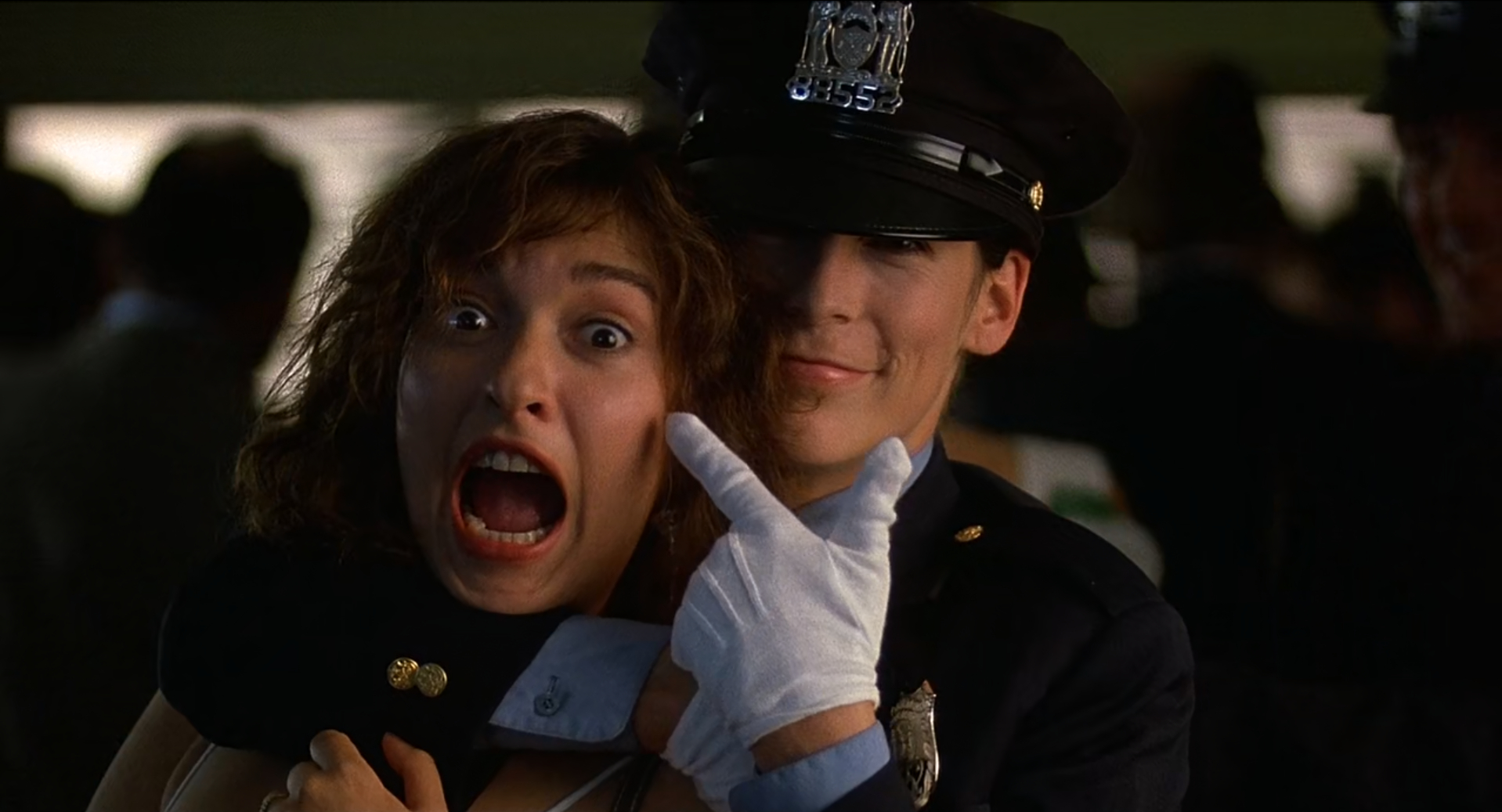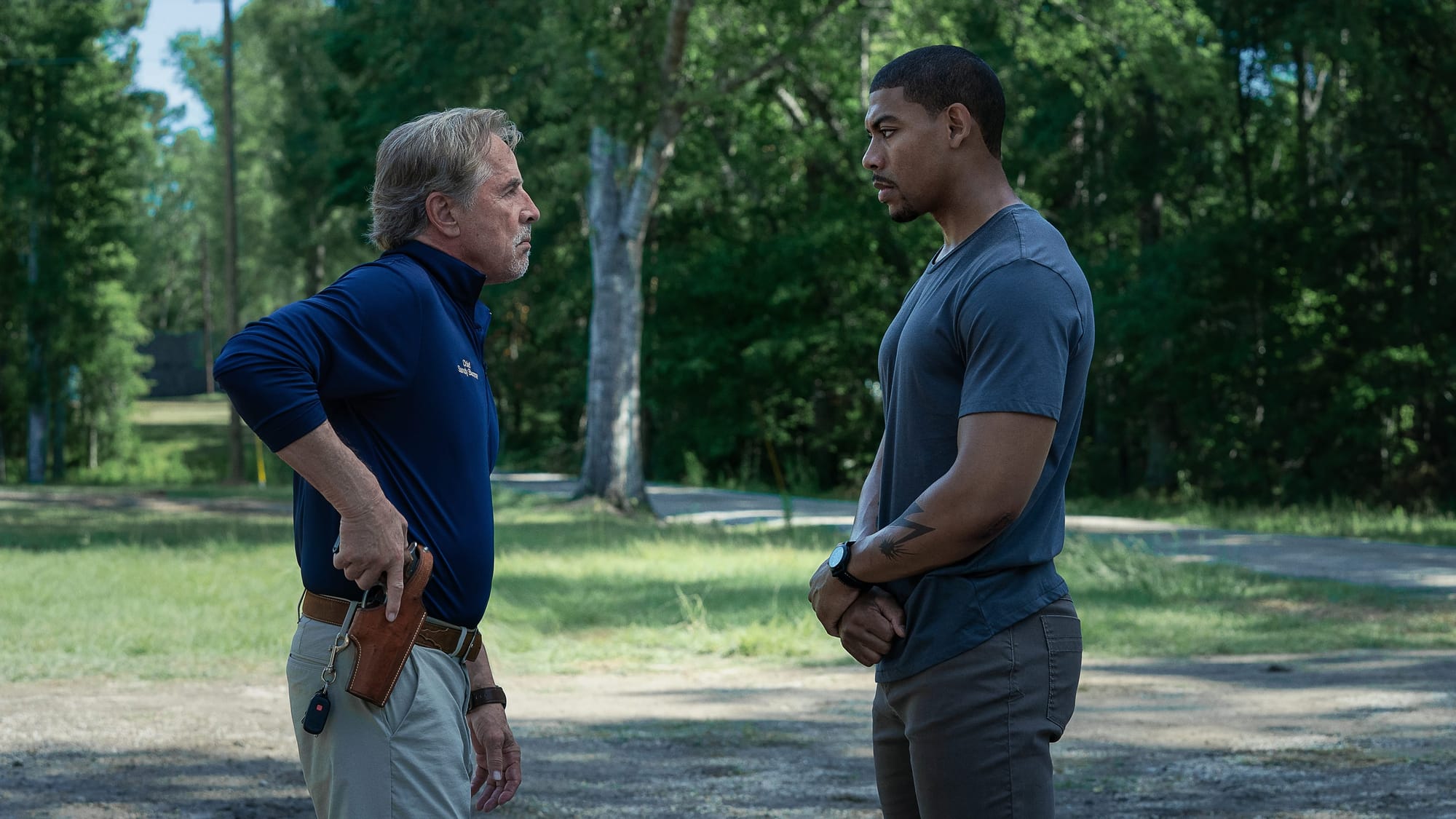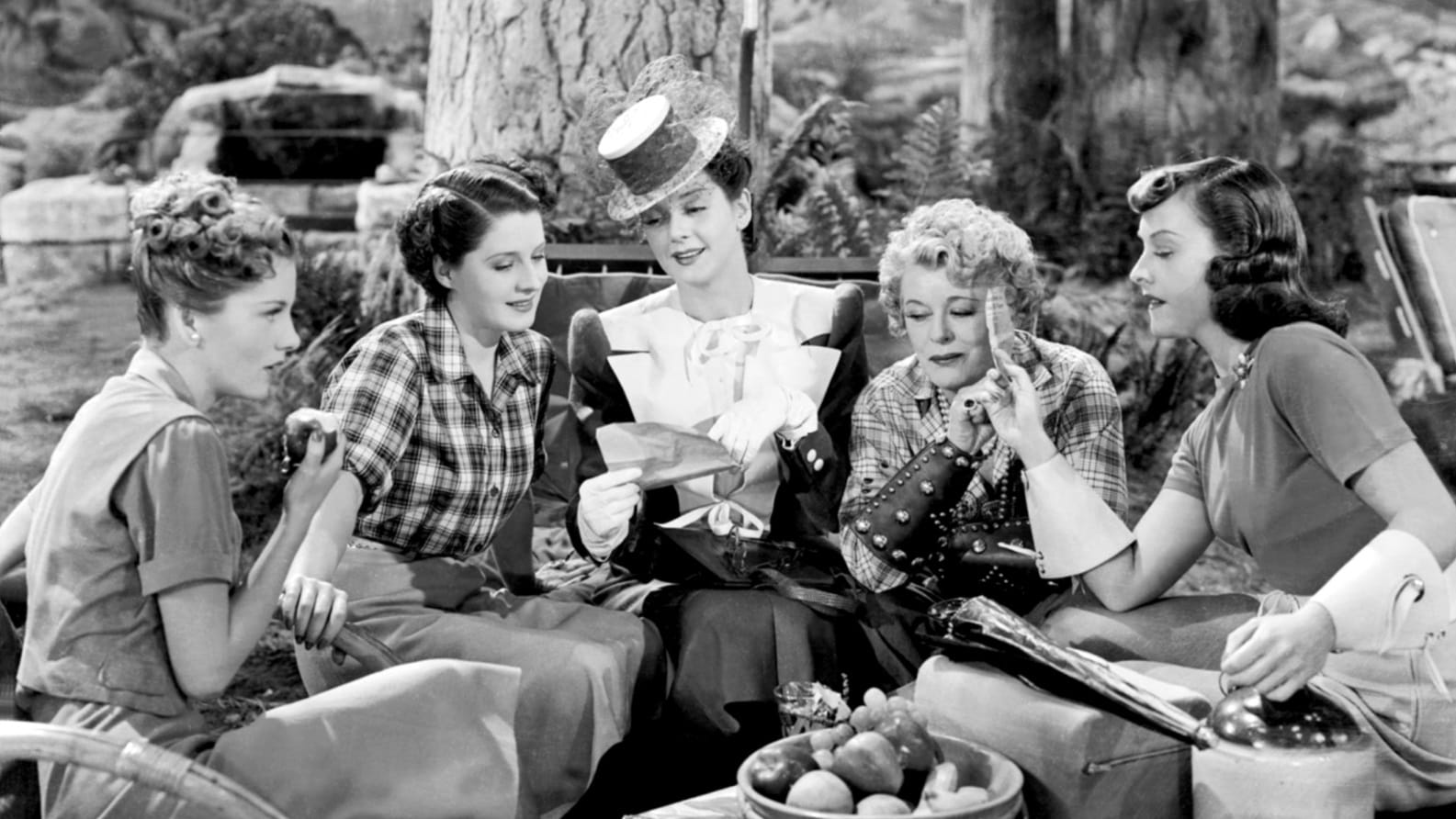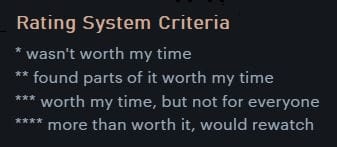Movie Log: Rebel Ridge, Support the Girls, and I AM LOVE

I'm really liking this format. My viewing has slowed down as I work to wind down my commitments here in Austin. But I'm actually a few weeks out on my "Movie Log" viewing. I like looking back at the movies I watched about three weeks ago and selecting for commonalities and contrasts.
This week's issue started with the movies in the middle of the list, but I wasn't totally satisfied with the overall variety. It all came together with a last-minute viewing of a 2024 movie, which just came out on Netflix:
Rebel Ridge
2024, USA, d. Jeremy Saulnier, 2h11m, ****
Who's In It: Don Johnson, Aaron Pierre, AnnaSophia Robb, David Denman
Reason to Watch: Jeremy Saulnier never disappoints
Streaming now on Netflix
It starts with a traffic stop on a backroad of the Southern U.S. Anything but routine - no crime was committed - but suddenly, an innocent black man is injured by the cops, detained, and his hard-earned money is taken in civil forfeiture. He needed that money to bail his cousin out of jail for a possession charge. Injustice is heaped upon injustice. This is a slow-burn thriller that rarely lets up its palpable tension.

Aaron Pierre proves he has the star-power to lead a great cast and stand his ground against a mean and corrupt Don Johnson. I love the new Amazon series version of "Jack Reacher" for what it is: it's the pinnacle of "Dad TV", a smarter version of male macho fantasies. But if you take away Jack Reacher's superhuman abilities, and his ability to talk back to the authorities with impunity, you raise the sense of danger and tension.
Long live a mid-budget crime thriller with an original story! It's sad that this kind of movie is nearing extinction in cinemas; the emotional payoffs in these kinds of films are some of the best to watch with a room full of strangers.
Support the Girls
2018, USA, d. Andrew Bujalski, 1h33m, ****
Who's In It: Regina Hall, Haley Lu Richardson
Reason to Watch: Andrew Bujalski, Haley Lu Richardson
This is going to sound snarky, but I don't think I've ever seen a movie that more accurately depicts normal life in "my hometown" before. I have never felt like I "recognized" real people like this, and I have never seen a movie set in a place as commonplace (to me) as a sports bar in a strip center next to I-35 in South Austin.
Support the Girls is a day-in-the-life of the food service industry for when you can't take the intensity of "The Bear". The incredible Regina Hall plays Lisa, the manager, who works tirelessly all day - hiring waitresses, getting contractors to repair the cable before the big PPV boxing match, kicking out rude customers, and being a therapist and social worker to her staff who are living day-to-day.

If it sounds like this would be "too real" viewing... it kind of is, but this movie captures that unique camaraderie of working a shitty job with your coworkers, and pretty soon you could hang out with them all night. And Regina Hall's character is the compassionate, competent manager that you would do anything for.
Andrew Bujalski makes some of our best true "indie" films; he always captures something strikingly authentic. And you should always watch anything Haley Lu Richardson is in because she's always doing something different and honing her craft.
The Women
1939, USA, d. George Cukor, 2h13m, ***1/2
Who's In It: Norma Shearer, Joan Crawford, Rosalind Russell, Hedda Hopper
Reason to Watch: Revisiting a Classic
You may be aware of the Bechdel Test, but if you're not here's the comic strip that inspired it. In a world where screenwriting is still dominated by male writers, the Bechdel Test is a simple check to reveal if female characters are only in a movie to be love interests or wives, second fiddle to male characters driving the real story.

In 1939, MGM made a big deal about the progressiveness of their new prestige picture The Women: a movie with over 130 speaking roles, and not a single male actor appears. Unfortunately, it still only passes the Bechdel Test if you consider a quick conversation about a dog's appointment at the vet...
Based on a successful play, The Women is about a woman whose husband is cheating on her, how the rumor circulates and eventually gets back to her, and her consideration of whether to get a divorce (gasp). Not only is the subject matter dated, I doubt it's a realistic look at women's perspectives in 1939, due to its setting in WASP-y high society and coming from a culturally-isolated Hollywood. The commitment to the gimmick of no male actors leads to a ridiculous scene: when the wife confronts her husband, we have to find out what happened from the maid who snooped from just outside the room.
Despite all this, The Women is a well-made and entertaining film, filled with a who's who of stars and character actors, real gossip columnist Hedda Hopper, an outrageous luxury bathtub, and excellent dialogue full of quips and barbs.
Blue Steel
1990, USA, d. Kathryn Bigelow, 1h42m, ****1/2
Who's In It: Jamie Lee Curtis, Clancy Brown, Louise Fletcher, Kevin Dunn
Reason to Watch: Kathryn Bigelow, '90s Neo Noirs
Jamie Lee Curtis is the NYPD's newest patrolling officer, and on her first day she stumbles onto an armed robbery and has to respond with lethal force. But evidence goes missing from the crime scene, and suspicion falls on her as a rookie - and frankly, as a woman - that she let her nerves get the better of her.

I can see why this movie was a flop, and hardly talked about these days: a realistic police procedural this is not. Early in my viewing, I was miffed about how unrealistic the scenarios were in her cadet training, and how she didn't follow good police procedure. But as the movie gets darker and weirder, I realized I was expecting the wrong Kathryn Bigelow.
The later Kathryn Bigelow of The Hurt Locker (2008) and Zero Dark Thirty (2012) is known for gritty realism and thorough research. But in the time of Near Dark (1987) and Point Break (1991), she was not interested in realism. She flirts with surrealism, embracing the genre conventions of "the movies" while she carefully sneaks in her thoughts on violence and masculinity like thematic trojan horses.
Blue Steel is a highly stylized, subjective movie from the point-of-view of Jamie Lee Curtis' Megan Turner. Her life becomes a waking nightmare as she faces endemic sexism and the corrupting toxicity of the 'blue wall of silence'. Bigelow also dissects Americans' unhealthy fascination with guns.
If you saw this movie way back when, you probably think I'm nuts for my star rating. Especially if you saw it on poor quality home video or on TV (the movie looks and sounds spectacular in HD). But try watching it again with the following idea in your mind: watch it like there's a hint of the supernatural involved. Watch it like it's a werewolf movie. Watch it like the gun is a cursed object that possesses whoever touches it, turning him/her into a Gollum-like creature. I think you won't be able to see it any other way.
I Am Love
2009, Italy, d. Luca Guadagnino, 2h, *****
Who's In It: Tilda Swinton
Tilda Swinton learned to speak Italian with a Russian accent for her second feature with Luca Guadagnino (Call Me By Your Name, Challengers). The film was a massive indie hit that established his reputation for cinephiles around the world. Swinton plays the foreign wife of a wealthy Italian factory owner, who has never completely fit into the family and her marriage seems like a job: manage the servants, plan the dinner parties. Her adult son wants to go into business with his best friend and eschew the corporate leadership role expected of him to open a restaurant. Passions and longings awaken in Swinton's character, attracted to this younger man whose cooking makes her nostalgic.

This movie is uniquely scored with pre-existing music by American composer John Adams (someone who I, a classical nerd, listened to constantly throughout the 2000s). At first I was skeptical that this was the right music for a movie that was pitched to me as a Douglas Sirk-style melodrama. His "post-minimalist" style combines simple clockwork rhythms with tons of busy ornamentation and fragments of melodies worked and reworked like they're on an assembly line.
Take the piano concerto "Century Rolls" - prominent on the soundtrack of I Am Love - which constrains the pianist into playing mechanical rhythms evoking player piano rolls. The whole point in this piece, as with this movie, is that the human pianist can't help but put impulse and emotion into the piece and eventually leaps "off the track" with pent-up passion. Tilda's journey from an ordered life to one of sensual abandon is mirrored by a move from traditional camera work to wild swooping camera shots, and from the cloistered life of a rich factory mogul to living wild and free off the fat of the land. The beautiful cinematography - and its editing - becomes almost experimental as the movie races to a breathless climax.
